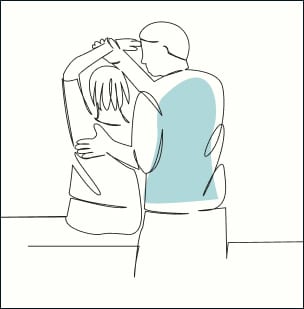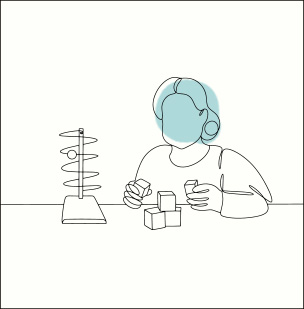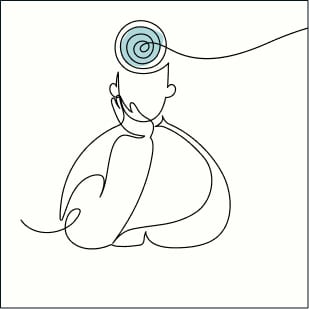
Living with chronic pain or fatigue can affect nearly every aspect of daily life. For people navigating fibromyalgia or chronic fatigue syndrome (ME/CFS), understanding the differences between the two is an important step toward finding the right kind of support.
While these conditions can present with overlapping symptoms like exhaustion, sleep issues, and cognitive difficulties, they are medically distinct and require different approaches to diagnosis and management.
What Is Fibromyalgia?
Fibromyalgia is a chronic condition that causes widespread musculoskeletal pain, often accompanied by fatigue, brain fog, and unrefreshing sleep. It affects how the nervous system processes pain signals, leading to heightened sensitivity. People with fibromyalgia may also experience:
- Morning stiffness or numbness
- Sensitivity to light, sound, or temperature
- Digestive issues such as IBS
- Mental health symptoms like anxiety or depression
Fibromyalgia is complex and often misunderstood, with symptoms that fluctuate and vary between each person. Many people struggle for years before receiving a proper diagnosis. Recent research is also exploring whether fibromyalgia may have hereditary components.
What Is Chronic Fatigue Syndrome (ME/CFS)?
Chronic fatigue syndrome, also known as myalgic encephalomyelitis or ME/CFS, is a condition marked by deep, persistent fatigue that doesn’t improve with rest and worsens with physical or mental exertion. A hallmark symptom of ME/CFS is post-exertional malaise (PEM)—a significant crash in energy and function following even mild activity. Other symptoms may include:
- Cognitive difficulties (sometimes called “brain fog”)
- Sleep disturbances
- Dizziness or lightheadedness
- Sore throat or tender lymph nodes
- Muscle or joint pain
Unlike fibromyalgia, where pain tends to dominate, ME/CFS centers around an energy crisis that affects cellular and neurological function. The fatigue can be so intense that it impacts basic tasks like showering or making meals.
Overlapping Symptoms & Dual Diagnoses
Many people experience both conditions concurrently, adding a layer of complexity to their health journey. This overlap is not uncommon, some studies suggest a significant percentage of those diagnosed with fibromyalgia also meet the criteria for ME/CFS.
Shared symptoms between the two include:
- Non-restorative sleep
- Cognitive difficulties (memory and focus)
- Chronic pain or discomfort
- Fatigue that limits daily activities
Despite the similarities, the primary complaint often separates them: pain is the dominant symptom in fibromyalgia, while profound fatigue and PEM are central to ME/CFS.
Key Differences at a Glance
While the conditions are both chronic and life-altering, they differ in terms of diagnosis and primary symptom focus.
- Fibromyalgia is typically diagnosed based on widespread pain and symptom severity over time.
- ME/CFS diagnosis requires a history of unexplained fatigue lasting more than six months, post-exertional malaise, and other neurological or autonomic symptoms.
Understanding these differences can help people seek appropriate care and communicate more clearly with their healthcare team.

The Emotional & Mental Health Impact
Living with an invisible illness often leads to emotional strain, especially when symptoms are misunderstood or dismissed. Anxiety, depression, and grief are common reactions to the loss of function and independence that fibromyalgia or ME/CFS can cause.
Mental wellness can be a key part of a care model. Programs designed to support, not just physical symptoms, but the emotional challenges that come with chronic illness. Personalized support, counselling, and stress management strategies can play an essential role in a well-rounded recovery approach.
Why Personalized Care Matters
There is no one-size-fits-all treatment for fibromyalgia or ME/CFS. What works for one person may not work for another, and symptom management often involves trying different strategies over time. That’s why personalized care is so important. Depending on needs and goals, support might include:
- Gentle physiotherapy to reduce tension and improve mobility
- Guided movement therapies tailored to energy levels
- Education on pacing and activity management
- Nutritional and sleep hygiene strategies
- Emotional resilience coaching or psychological support
This whole-person approach helps people manage symptoms more effectively while also supporting mental and emotional well-being.
Building Tools for Daily Life
When pain or fatigue becomes overwhelming, it can feel impossible to know where to start. This recent article breaks down helpful steps for when chronic pain reaches a breaking point; strategies that are equally valuable for those managing energy crashes or symptom flares.
Another blog post explores the role of nurse practitioners in chronic pain care. These professionals often play a vital role in bridging the gap between medical treatment and lifestyle support, helping patients track symptoms, identify patterns, and build practical coping strategies over time.
Advocating Through Education & Awareness
Tyler Dillman, key physiotherapist at One to One Wellness, works closely with the Fibromyalgia Association of Canada to increase public understanding and medical recognition of fibromyalgia. By raising awareness and sharing resources, he contributes to breaking down the stigma and helping more people find validation and effective care.
Through collaboration and advocacy, people with fibromyalgia and ME/CFS are better supported, both within the healthcare system and in their communities.
A Place for Comprehensive Wellness Support
For people navigating the complexities of fibromyalgia or ME/CFS, finding care that respects both the physical and emotional sides of chronic illness is essential. One to One Wellness offers a collaborative and compassionate environment where clients can access the tools, professionals, and personalized guidance needed to manage daily life.
Whether you’re dealing with persistent pain, unrelenting fatigue, or the frustration of not being heard, One to One Wellness brings multiple services under one roof to help you move forward.
Book an appointment and discover the personalized physiotherapy and mental health support we have to offer. This whole-person model of care is designed to meet you where you are; and walk alongside you at a pace that fits.

















